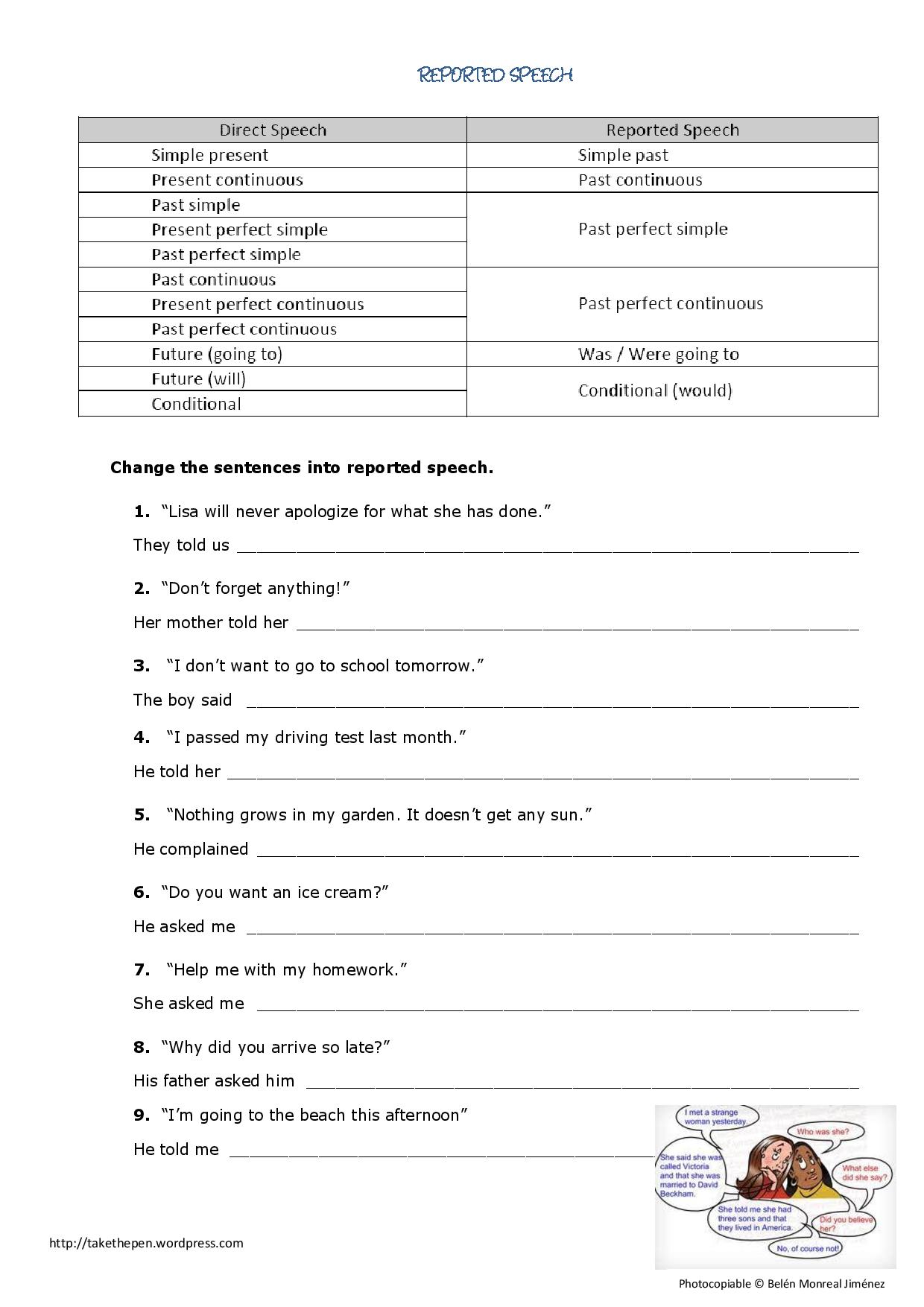

Look at the example.Į.g.: Leave the room. Task - Rewrite the sentences into reported commands in the present. 'Would you like me to help you?'ĭo this exercise to test your grammar again.R E P O R T E D C O M M A N D S / R E Q E S T S / S U G G E S T I O N S If the question is making an offer, request or suggestion, we can use a specific verb pattern instead, for example offer + infinitive, ask + infinitive or suggest + ing.

'Are you going to the Helsinki conference?' In yes/ no questions, we use if or whether to report the question.

You can learn about these changes on the Reported speech 1 – statements page. We also often make changes to the tenses and other words in the same way as for reported statements (e.g. Do you like) to a statement structure (e.g. In indirect speech, we change the question structure (e.g. Indirect speech: He asked me if I liked working in sales. To do this, we can use direct speech or indirect speech.ĭirect speech: 'Do you like working in sales?' he asked. Grammar explanationĪ reported question is when we tell someone what another person asked. Indirect speech: She asked me to write it down.

Indirect speech: She asked me who I'd seen.ĭirect speech: 'Could you write that down for me?' she asked. Indirect speech: He asked me if I worked from home.ĭirect speech: 'Who did you see?' she asked. direct speech: 'Do you work from home?' he said. Look at these examples to see how we can tell someone what another person asked.


 0 kommentar(er)
0 kommentar(er)
